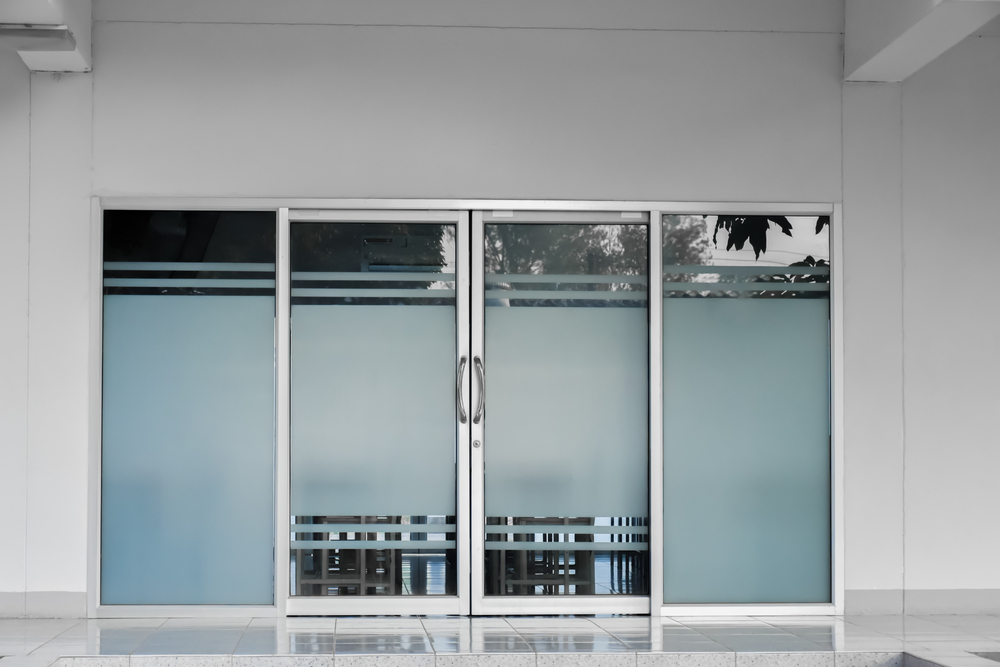
Choosing Glass Types: Tempered, Laminated, or Insulated for Commercial Doors
June 1, 2025 6:43 pm Leave your thoughtsSelecting the right glass type for commercial doors is a crucial decision that impacts not just aesthetics but also security, energy efficiency, and compliance with safety codes. Business owners, architects, and property managers must consider several factors when deciding between tempered, laminated, and insulated glass options. Each glass type offers distinct benefits suited to different environments, usages, and architectural intentions. Understanding the characteristics, advantages, and potential limitations of each can help ensure your commercial space achieves both functional and design objectives. In this blog, we’ll delve into the specifics of each glass type, helping you make a well-informed choice for your next commercial door installation.
Understanding Tempered Glass for Commercial Doors
Tempered glass, also known as toughened glass, is one of the most popular choices for commercial door installations due to its strength and safety features. Manufactured through a controlled thermal or chemical treatment process, tempered glass is significantly stronger than standard annealed glass. This strength allows it to withstand high levels of stress and impact, making it ideal for areas that experience heavy traffic or are prone to accidental contact.
What sets tempered glass apart is how it breaks. Instead of shattering into dangerous shards, it crumbles into small, blunt pieces that are far less likely to cause injury. This property makes it an excellent choice for environments where safety is a top priority, such as storefronts, office buildings, hospitals, and schools. Furthermore, tempered glass for commercial doors often meets or exceeds local building codes and safety regulations, adding an extra layer of compliance assurance.
Tempered glass also offers excellent thermal resistance, which is beneficial in maintaining indoor comfort. Its ability to withstand sudden changes in temperature makes it suitable for exterior doors exposed to varying weather conditions. However, one limitation to consider is that once tempered, this type of glass cannot be cut or modified; any alterations must be made before the tempering process.
The Unique Advantages of Laminated Glass
Laminated glass stands out as a premier option for commercial properties that prioritize security and sound insulation. This glass type is created by bonding two or more layers of glass with an interlayer, typically made of polyvinyl butyral (PVB) or ethylene-vinyl acetate (EVA). This construction ensures that even if the glass breaks, the fragments remain adhered to the interlayer, preventing them from falling out of the frame.
The safety features of laminated glass are particularly advantageous in high-security areas, such as banks, government buildings, and retail locations with valuable merchandise. Because the interlayer holds the broken glass in place, it provides a strong deterrent against forced entry and vandalism. Moreover, laminated glass offers excellent soundproofing qualities, making it ideal for commercial settings where noise control is essential, like conference rooms, recording studios, or buildings near busy roads.
Laminated glass can also incorporate additional features, such as UV protection and decorative interlayers, making it a versatile choice for those looking to blend safety with design. Though typically more expensive than tempered glass, the added security and noise reduction capabilities often justify the cost in environments where these features are non-negotiable. The downside, however, is that laminated glass can be heavier and may require specialized framing or support structures.
Energy Efficiency with Insulated Glass Doors Commercial Applications
When it comes to energy efficiency and climate control, insulated glass doors commercial solutions are hard to beat. Insulated glass units (IGUs) consist of two or more panes of glass separated by a spacer and sealed to create a vacuum or gas-filled space between the layers. This design dramatically reduces heat transfer, making insulated glass doors a prime choice for buildings aiming to reduce energy consumption and maintain consistent indoor temperatures.
These doors are particularly beneficial in regions with extreme weather conditions—be it hot summers or frigid winters. The insulating gap between the glass panes minimizes the need for constant heating or cooling, leading to lower utility bills and a reduced carbon footprint. Commercial spaces like office complexes, hotels, and shopping malls often rely on insulated glass to achieve their energy efficiency goals while providing a comfortable indoor environment for employees and customers alike.
In addition to thermal insulation, IGUs also offer enhanced sound insulation, making them suitable for urban locations or areas with high ambient noise. The aesthetic flexibility of insulated glass is another plus, as it can be paired with tinted, frosted, or low-emissivity (Low-E) coatings to meet specific design and performance needs. However, maintenance and potential seal failures are considerations to keep in mind. If the seal around the glass panes deteriorates, condensation can form between the layers, compromising both appearance and insulation performance.
Comparing Use Cases and Performance Across Glass Types
Each glass type—tempered, laminated, and insulated—offers specific benefits tailored to different commercial applications. Understanding the context of use is essential in making the right choice. For high-traffic areas such as mall entrances or public buildings, tempered glass provides a balance of strength and safety without compromising clarity or aesthetics. Its resistance to impact and thermal shock makes it suitable for frequently used doors exposed to various environmental stresses.
Laminated glass, with its enhanced security and acoustic performance, is well-suited for commercial spaces requiring confidentiality and protection. This includes law firms, medical facilities, and high-end retail stores. Its ability to remain intact even when shattered significantly reduces the risk of injury and unauthorized entry, making it a reliable option for locations with stringent safety demands.
For businesses focused on sustainability and energy savings, insulated glass doors commercial-grade installations are a strategic investment. Not only do they contribute to better indoor climate control, but they also align with green building certifications such as LEED. Their ability to reduce noise and regulate temperature makes them especially attractive for buildings aiming to enhance occupant comfort and operational efficiency.
While each glass type can be customized to some extent—through coatings, tints, or integration with smart technologies—the core advantages remain rooted in their structural design. Budget considerations, regulatory compliance, and long-term maintenance requirements should all factor into the decision-making process. Engaging with glass specialists or commercial door manufacturers can provide deeper insights and help tailor the choice to your building’s unique needs.
Making the Right Choice for Your Commercial Project
Choosing the appropriate glass for commercial doors involves a multifaceted evaluation of performance, aesthetics, and compliance. Whether you’re renovating an existing property or designing a new commercial space from the ground up, aligning your glass choice with operational goals and safety standards is paramount.
Tempered glass for commercial doors is an excellent all-around option that satisfies most safety codes while delivering a modern, clean look. It’s especially fitting for entrances, internal partitions, and other high-use areas. Laminated glass shines in situations where security and sound control are critical, offering peace of mind and reduced vulnerability to break-ins. Meanwhile, insulated glass doors commercial applications are the go-to solution for organizations emphasizing energy efficiency and indoor comfort, often enhancing both environmental impact and cost savings.
Conclusion
Ultimately, no single glass type is universally superior; the best choice depends on the specific needs of the commercial environment. Consulting with architects, designers, and industry professionals can help ensure that your selected glass type not only meets practical requirements but also contributes to a cohesive, appealing, and sustainable commercial space. With the right glass in place, your doors can become more than just entry points—they can act as strategic assets that enhance functionality, safety, and visual appeal.
Need Glass Repair Services Near You?
If you’re in need of expert glass repair or installation, we’d love to help! At S & S Glass Co., we take pride in delivering top-quality service with a personal touch that only a locally owned business can offer. Whether it’s custom shower doors, replacement windows, or insulated glass unit repair, our experienced team is ready to handle your residential or commercial needs. Reach out to us today for a free estimate—we’re here to make your project seamless and stress-free. Don’t forget to ask about our military discount!
Categorised in: Commercial Glass Door
This post was written by admin
